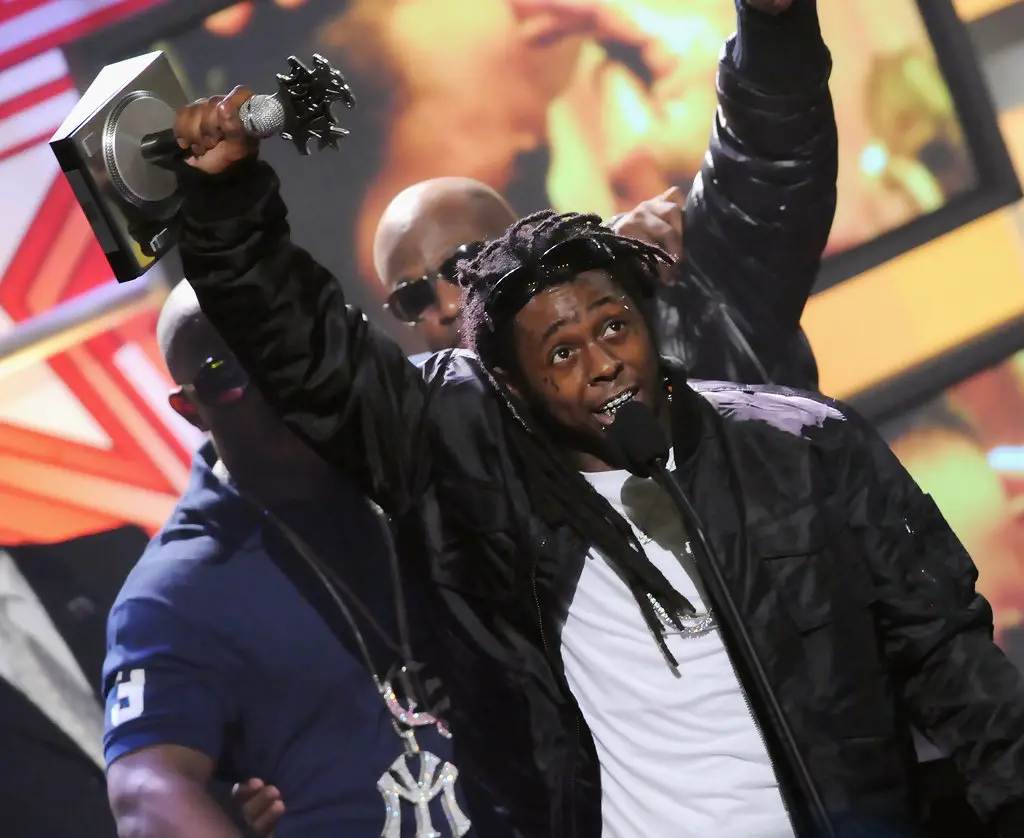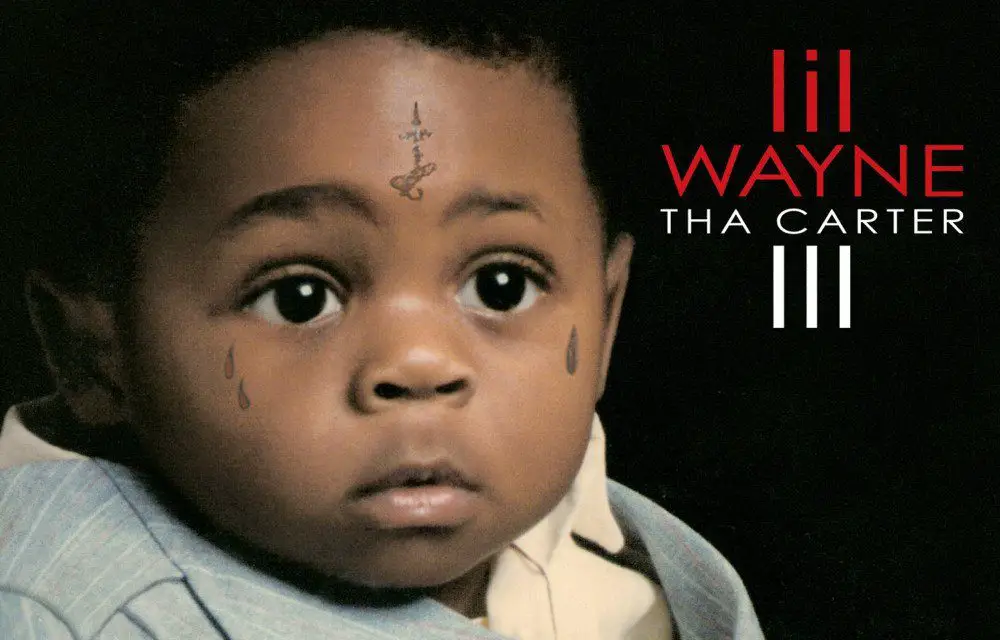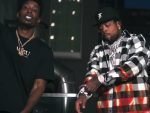Throughout the history of record sales, there have been a handful of transcendent albums which managed to accomplish the rare feat of going platinum in a week’s time. Projects to reach this high pedestal are often generational, insinuating that a number of them grew obsolete once they lost the appeal of a respective peer group.
Although for every Backstreet Boy, member of Limp Bizkit and “Dancing with the Stars” contestant you can find on this list, there is an Eminem, Whitney Houston and — *flicks lighter* — one mister Dwayne Michael Carter Jr.
Although pushing a million copies in seven days is a major feat, and Lil Wayne is prone to praising the shiniest of objects, his album “Tha Carter III” holds far more weight than just another project that happened to sell a shit-ton of records.
Having said that, the Hollygrove-native’s premier project has officially turned 10 years old and has managed to have a transcendent impact on hip-hop dating back to its arrival in June 2008. It’s a modern-day classic.
Consisting of tracks that still manage to resonate with many today, be that anything from Weezy’s transcendent attempt at flirting with the techno community on “Lollipop” (featuring the late Static Major) to the sense of raw emotion he displays on, yes, “Pussy Monster.”
An ode to this generation, as some would consider it to be; though, on the other hand, some might view it as a soundtrack to the century.
From a sonic point of view, the project starts off grand and abrasive. On “3Peat,” the song’s beat hauntingly creeps up on you, as Lil Wayne makes his presence felt with one far-fetched paradox out of his many (“They can’t stop me, even if they stopped me”).
Following the intro, Weezy offers another surfeit of iconic singles, and it’s safe to say most of this generation grew up hearing them on the way to school at least a couple of times. For starters, “A Milli,” an anthem that manages to epitomize the prime of his career to a T, arguably ranks amongst the most significant songs in his discography.
Then there’s “You Ain’t Got Nuthin,” one of those classic, New-York-inspired cuts with productions that leave you absolutely ill and lyrics that make you grimace each time you listen. The posse cut plays home to a pair of guest verses from Fabolous and Juelz Santana, who arguably manage to outdo Wayne on his very own track.

In an interview with VIBE Magazine in 2011, Fabolous details how he recorded his verse before the song was sold to Weezy a year later, and he jokingly asked if they sabotaged him. Although he still sees his verse as great, considering it withstood the test of time.
Straying away from the LP’s more poppy singles, “Dr. Carter” might genuinely be his most lyrically intricate showcase to date, let alone a standout track that displays his wit to the fullest.
Lil Wayne stepped into the booth with intentions of playing doctor, and he went on to make it clear that he is hip-hop’s savior, thanks to his all-around knowledge of what the game truly needs from flow to metaphors and everything in between.
Weezy takes on his greatest challenge in reupholstering the rap game, taking on rappers with a lack of literary skills (“Arthritis in my hand from writin’ / But I’m a doctor, they don’t understand my writin’!”) and swagger (“That swagger, I got it, I wear it like a coat / Wait, as I put the light down his throat, I can only see flow”).
Lil Wayne consequently saves the game, all the while keeping complete composure, (“Strong signs of life, where’s the stitches, here’s the knife / Smack his face, his eyes open, I reply “What a night” / Welcome back Hip-hop — I saved your life”).
Back in the summer of 2007, an uncountable swarm of Lil Wayne leaks spread across the internet like wildfire. Nevertheless, this only managed to press his foot harder on the game’s neck, exhibiting quantities of music that no other artist was capable of producing at the time. It was nearly machine-like.
This ultimately forced Wayne to reinvent the album, both sonically and lyrically, which arguably ended up being the best move of his career to date. Once May of the following year rolled around, the final version of the album had leaked two weeks prior to its release date.
With that being said, “Tha Carter III” went on to sell 423,000 copies on the day it came out and a million one week later.
Whether you are listening to one of his syrupy, libido-driven anthems or one of the more belligerent assaults aimed toward his hip-hop contemporaries, there is surely some verbal weapon that your favorite rapper has taken out of Wayne’s illustrious arsenal.
Following his gargantuan year in 2008, Lil Wayne managed to take home four Grammys, including one for best rap album, as the committee provided the world-renowned personification of rap with what was once considered the validity of high honor.

Although the gold trophies shine brightly on whichever shelf in whatever house he chooses to keep them in, no moment from this award ceremony reigns more significant than or as powerful as his performance of “Tie My Hands” alongside Robin Thicke, Alain Toussaint and Terence Blanchard.
The heartfelt memoir dedicated to his hometown of New Orleans also plays the role of a stern critique toward former President Bush, in which he puts his city on his back (“Take away the football team, the basketball team / And all we got is me to represent New Orleans, shit”) and his home in his thoughts (“They tryna tell me keep my eyes open / My whole city underwater, some people still floating”).
This dedication, upon donating $200,000 to a relief project in order to renovate Harrell Park, goes to show he’s not so alien after all.
In one of the more profound conversations had with the ubiquitous rapper, Katie Couric of CBS News sat with Wayne and delved into topics such as his passion for bowling, the misunderstood face tattoos, Hurricane Katrina, sonic expression, smoking weed medicinally, various pseudonyms and never writing down a goddamn thing.
Their talk took place a couple of weeks prior to those same Grammys, though I stumbled upon it four years later and was convinced of how critical Lil Wayne’s persona, music and style are to the hip-hop culture.
When Couric asked him how he remembers all his lyrics without writing any down, Lil Wayne responded with, “That’s the best part about it. When anybody asks me that, I always tell them ‘It’s because I really am it.’” One decade later, it’s safe to say Wayne’s lasting impression hasn’t shifted in the slightest, and “Tha Carter III” is merely a flawless embodiment of that very character.

















